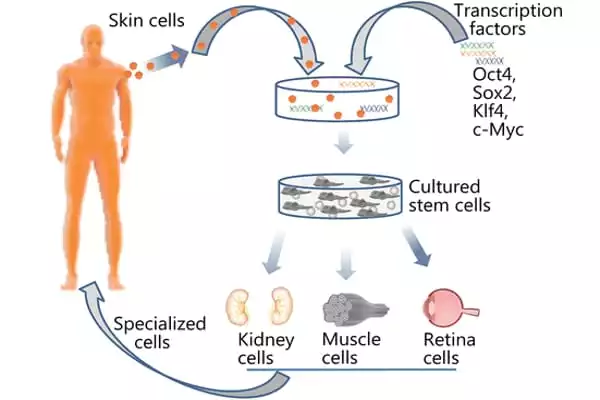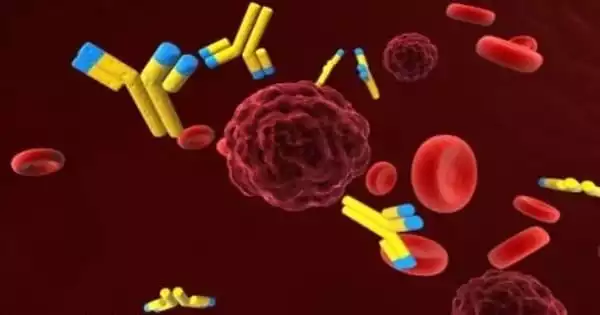CellRepo, a species and strain database that employs cell barcodes to monitor and track created organisms, has been launched by an international collaboration. The database manages and organizes the digital data generated during cell engineering. It also molecularly connects that data to the corresponding biological samples. A cloud-based repository that generates a digital fingerprint of modified microorganisms has been tested successfully.
CellRepo, a species and strain database that employs cell barcodes to monitor and track engineered organisms, has been released by an international team led by Newcastle University. The database, which is described in a new study published in the journal Nature Communications, keeps track of and organizes the digital data generated during cell engineering. It also molecularly connects that data to the corresponding biological samples.
This resource, which is available globally, promotes international collaboration and offers major safety benefits, such as reducing the impact of intentionally or accidentally released genetically modified microbes by enabling faster tracing of the lab of origin and design specifications.
CellRepo is based on version control, a software engineering concept that saves and tracks changes to software code. The researchers hope that version control for cell engineering will make engineering biology more open, reproducible, traceable and shareable, and trustworthy.
The widespread use of the CellRepo platform will make a significant positive contribution to the culture of science by providing a mechanism for ensuring traceability and transparency and enabling reproducibility.
Professor Simon Woods
The research team emphasizes other advantages of this community resource, such as traceability, which provides precise documentation for a strain and correctly credits laboratory effort. The database also emphasizes accountability by making it easy to track and transfer ownership.
Researchers will be able to replicate studies and collaborate more easily if they have access to a worldwide database. The experts also claim that the repository will increase transparency and lower the expenses associated with data and source code loss.
Lead author, Natalio Krasnogor, Professor of Computer Science and Synthetic Biology at Newcastle University’s School of Computing, said:
“Biology engineering is not rocket science. It’s a lot more difficult. As a result, it is critical that we work more freely and collectively. CellRepo, at its core, is a collaboration platform where cell engineers may document and share their work. We intend to accelerate and improve synthetic biology processes and reporting for everyone by enabling increased collaboration and seamless exchange of designed strains. As a community resource, we invite engineering biologists, synthetic biologists, biotechnologists, and life scientists, in general, to test it out and get in touch with us so we can learn what works and what needs to be improved!”
Dr. Jonathan Tellechea, a synthetic biologist in the project says:
“During my efforts, I’ve always experienced some misidentification concerns. Fortunately, I was able to identify and resolve them early on, but I can’t think how many good initiatives have failed or delayed as a result of this. Another portion of my time as a scientist is spent retroactively documenting the history of the plasmids and strains I employ. I might be able to obtain the genetic material from someone, but who was the original author? Sometimes I’m lucky and it’s just one document away, and other times I’m down a rabbit hole that may lead me to the 1980s. CellRepo solves these and other critical issues for experimenters.”

Leanne Hobbs, the project’s senior software engineer, reflects: “As a software engineer transitioning from industry to academia, it has been both a challenge and a pleasure to work on a project that allows me to put my skills to use for the greater good. Version control is an essential tool in software engineering, and I am excited that we are now introducing similar techniques to engineering biology.”
Dr. Lenka Pelechova, a social scientist at The Interdisciplinary Computing and Complex Biosystems (ICOS) research group, added, “As a social scientist, I believe the Responsible Research and Innovation framework is critical in addressing societal expectations and in opening up public discussions about new research and technology.” These discussions, in my opinion, should begin early on, and CellRepo helps this by making research transparent from the start.’
Professor Vctor de Lorenzo of the Systems and Synthetic Biology Program at the Centro Nacional de Biotecnologa in Madrid, Spain, and study co-author, stated: “Given engineered constructs’ inherent proclivity to mutate and overcome any type of genetic firewall, decades of efforts to contain recombinant bacteria have yielded few practical results. Instead, CellRepo provides consistent and unmistakable identification of specified strains, which may be rigorously tracked and related to digital twins with all information available if necessary for countermeasures, ownership, or liability purposes.”
Elena Velázquez, PhD student in Víctor de Lorenzo’s lab, added:
“As a synthetic biologist who spends all day working with plasmids and strains from various origins, I am used to discovering that the plasmid or strain I was using in my experiments was not what I requested.” This, of course, cannot be blamed on scientists who graciously offer their hard work altruistically, especially as there was no easy method to label and identify whether the strain at stake was the desired one.
“CellRepo is a platform that represents an extraordinary advancement in this field and can save researchers all around the world a lot of time and unnecessary labor. Furthermore, the worldwide strain archives that will be shared through this platform might be a beneficial open-source of samples as well as a bridge for new collaborations between different labs. Scientists can now speed up their investigations and increase the dependability of their Science thanks to CellRepo.”
Co-author Simon Woods, Professor of Bioethics at Newcastle University’s Policy Ethics and Life Sciences Research Centre, added: “The widespread use of the CellRepo platform will make a significant positive contribution to the culture of science by providing a mechanism for ensuring traceability and transparency and enabling reproducibility. Furthermore, CellRepo is a revolutionary science governance device that promotes responsible yet innovative work.”
















